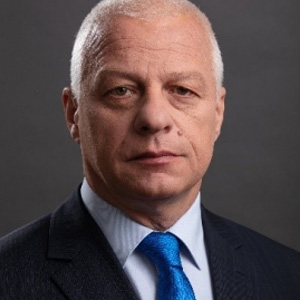
Never doubt that a small group of thoughtful committed individuals can change the world. In fact, it's the only thing that ever has. –Margaret Mead
Effective change begins at the grassroot-level by empowering citizen activists to battle against the inequitable acquisition of resources by unjust means—i.e. corruption. The fusion of academic knowledge (principles) and practical application (practices) provides the training and tools necessary to initiate seismic social change. Consequently, UNISHKA’s most important work is civil society empowerment through the training of Anti-Corruption Principles and Practices.
Anti-Corruption Studies (ACS) is emerging as a separate interdisciplinary subject that lives in the chasm between the social sciences and the humanities, with deep roots in both. From the social sciences, ACS draws upon Anthropology, Economics, Education, Law, Linguistics, Political Theory, Psychology, and Sociology. The cornerstones of Anti-Corruption Studies, however, are founded on the Humanities: Philosophy, Ethics, Religion and History. When combined with Formal Sciences (Statistics, Systems Theory, and Decision Theory), you have what can only be categorized as a new subject: Anti-Corruption Studies.
It is through Anti-Corruption Studies that UNISHKA empowers civil society activists and organizations to enhance equitability and improve the provisioning of public services for the people.

A native of Alaska, Jeffrey J. Coonjohn is the Chief Executive Officer and Operations Officer of UNISHKA Research Service. Possessing more than 30 years of experience combating corruption and promoting integrity reforms, he designs systems approaches, and identifies and implements novel solutions to address difficult integrity challenges within complex organizations. He develops national anti-corruption policies and strategies while advising on developing the legal framework and implementation of anti-corruption initiatives in legislative, executive, and judicial branches of government, as well as with the media and civil society. Coonjohn’s programmatic experience includes projects in the Middle East, Central Asia, South America, and Africa. Previous assignments include: Senior Policy Advisor (Anti-Corruption) for the United Nations; Senior Advisor for Anti-Corruption at the Prime Minister’s Advisory Council in Iraq; Stability and Operations Attorney in Kosovo and Macedonia, and United States Foreign Claims Commissioner for the Southern Balkans. Coonjohn holds a Bachelor of Arts from the University of California, Los Angeles and a Doctorate of Law from the University of Wisconsin-Madison. He is a graduate of the International Anti-Corruption Summer Academy in Vienna, Austria where he now teaches; has authored numerous papers on the study of corruption and the rule-of-law; and teaches at the National University of Ireland-Institute for Human Rights.

Drago Kos is an anti-corruption expert with a unique understanding of corruption. With 39 years of experience, Kos serves as the Chair of the OECD Working Group on Bribery, dean of International Anti-Corruption Academy, member of the Independent Anti-Corruption Advisory Committee in Moldova, member of the Advisory Board of the Chair of Good Government and and Public Integrity, University of Murcia, Spain, member of the Commission for Selection of the new Head of Specialized Anti-Corruption Prosecution Office in Ukraine, member of the Commission for the selection of the new Head of the National Anti-Corruption Bureau in Ukraine and member of the Performance Review Committee of the Prosecutor General in Moldova. He was the first chairman of the Commission for the Prevention of Corruption in Slovenia and was a founding commissioner and Co-Chair in the Joint Independent Monitoring & Evaluation Committee in Afghanistan. He has also served as the Chairman of the Council of Europe’s Group of States against Corruption (GRECO) and as a Co-Chair of European Partners against Corruption, and was a member of the US COGEL’s Global Affairs Committee. Previous positions also include Deputy Director of the Slovenian Criminal Investigation Directorate, Vice-chairman of the European Healthcare Fraud and Corruption Network, and a member of the Council of Europe’s Group of Specialists on Organized Crime. Kos holds an LLM from the Law Faculty at University of Ljubljana in Slovenia and passed the State Bar Exam at the Ministry of Justice of Slovenia.
coming soon…